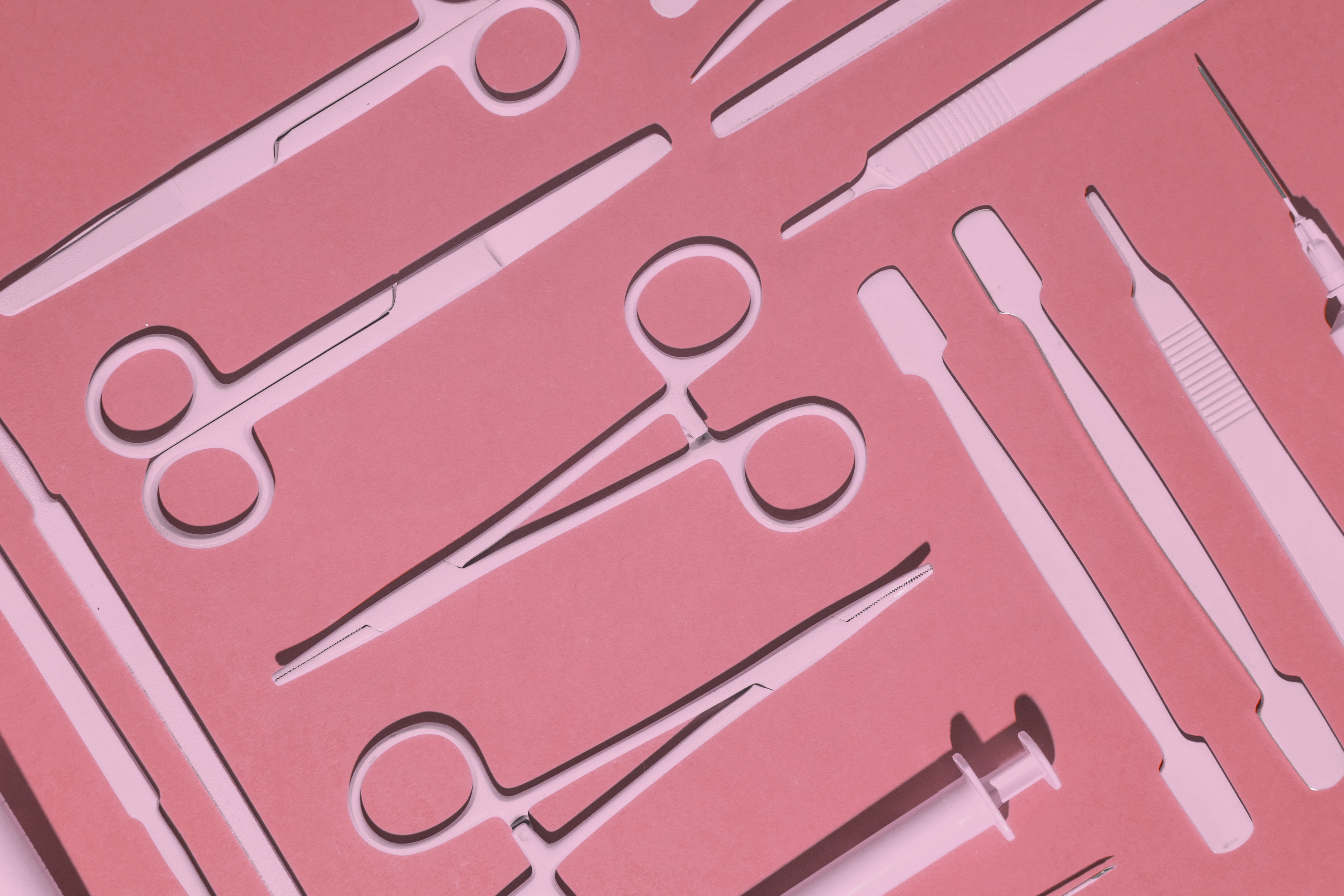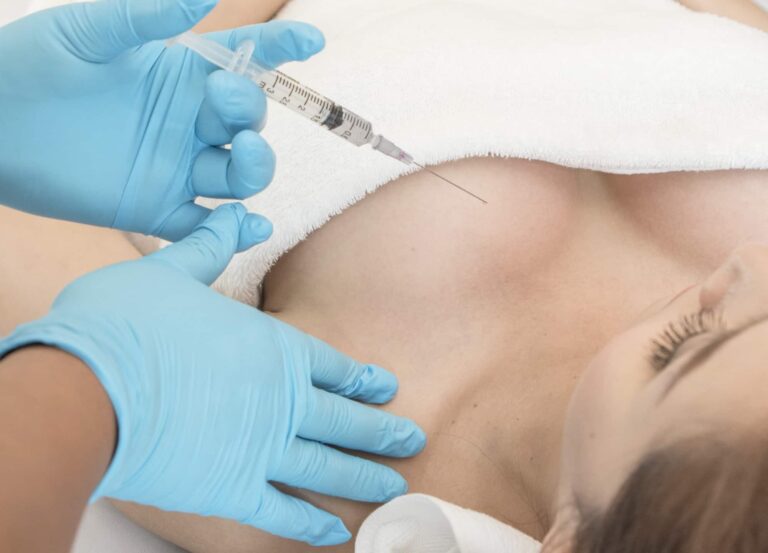Related Coronavirus Content
• What You Should Know About Aesthetic Treatments During the COVID-19 Outbreak
• All States Enacting New Regulations on Aesthetic & Dental Procedures, Due to Coronavirus Disease
• Doctors Fact-Check Social Media’s 12 Most Persistent Coronavirus Rumors
• How to Do Social Distance Like a Dermatologist
• Dermatologists and Plastic Surgeons Address Your Most Pressing COVID-19 Concerns About Procedures
Bad news for anyone planning to have surgery in the coming weeks or months: the chances of it actually happening are slim to none. As the COVID-19 statistics become increasingly grim, more hospitals and healthcare systems are heeding the call of the Surgeon General as well as various local legislatures by postponing nonessential surgeries. Obviously, cosmetic procedures, such as breast augmentations and rhinoplasty can wait. But when it comes to, say, reconstructing a breast after a mastectomy, things aren’t always as clear. What is nonessential surgery, particularly in the age of the coronavirus?
Why are nonessential surgeries getting postponed?
Before jumping into the nuances of essential and nonessential surgeries, it’s important to understand why health experts are urging surgeons to postpone whatever they can. “The reason to stop all nonessential services is twofold: transmission risk and supply chain,” says Dr. Matthew Schulman, a board-certified plastic surgeon in New York City. He points first to the risk of transmission, especially because COVID-19 is commonly spread by asymptomatic carriers who may unwittingly infect nurses, doctors, or even other patients in the waiting room. “Simply screening patients for COVID-19 symptoms is inadequate,” he notes, “since it will not prevent contact with asymptomatic carriers.”
Emerging evidence suggests that certain surgeries put surgeons at greater risk of COVID-19 exposure, says Dr. Jason Roostaeian, a board-certified plastic surgeon in Los Angeles. “Nasal airway surgeries are more risk for the healthcare practitioner,” he says. “Even the N95 masks don’t seem to be enough prevention, because the viral load in the nose is the highest.”
Then there’s the well-publicized dearth of equipment. Faced with dwindling supplies, hospitals simply can’t afford to allot protective supplies to any procedure that isn’t about urgently saving lives. “Even simple things, like gowns and masks, are hard to find,” says Dr. Roostaeian. “It’s of concern for anyone to be doing elective cases during a shortage.” Space too is increasingly at a premium, he adds: “Hospitals may need to convert operating rooms into intensive care units.” With such high stakes, conserving resources and reducing the number of surgeries should save lives.
What is the difference between essential and nonessential surgery?
Essential and nonessential, elective and nonelective—these terms are related, but they don’t mean precisely the same things. “The terms ‘essential’ and ‘nonessential’ have been used interchangeably with ‘nonelective’ and ‘elective,'” says Dr. Schulman. “But they really are quite different.” Here’s what each term means.
Essential surgery
In layman’s terms, this surgery needs to happen to prevent death, progression of disease, or long-term disability. “These are procedures that treat conditions with a large health burden, can be treated cost-effectively, and are feasible to promote globally,” Dr. Schulman says. Think of urgent and emergency surgeries that need to happen as soon as possible, to treat conditions such as acute appendicitis and trauma. You may hear essential surgeries referred to as nonelective, because these procedures have to happen.
Nonessential surgery
This type of surgery can be postponed, without risk to the patient. Even outside a pandemic, cosmetic surgery falls into this category, says Dr. Karen Horton, a board-certified plastic surgeon in San Francisco. That may seem obvious when it comes to, for instance, a tummy tuck. But it’s also the case for many non-cosmetic plastic surgery procedures. “Many reconstructive plastic surgery procedures are also considered nonessential—such as hand surgery, breast reconstruction second-stage procedures, cleft lip and palate revisions, or other reconstructions that are not vital to preserve the life or health of a patient,” she says.
Elective surgery
Contrary to popular belief, elective surgeries aren’t always optional. Rather, the term is used for surgeries that can be scheduled ahead of time. “An elective procedure is one that is planned in advance and the timing will have little effect on the outcome of the procedure,” Dr. Schulman says. Elective surgeries can be cosmetic (as in a rhinoplasty) or medically necessary (as in a tonsillectomy).
Nonelective surgery
This falls back into the “essential” category.
Who decides which surgeries are essential?
In our current situation, defining essential surgeries can change hour by hour—depending on the resources and availability of any given hospital. “There are specific guidelines and classifications by hospitals and surgical organizations that categorize each procedure,” Dr. Schulman says. For example, the American College of Surgeons has issued guidelines for nonemergency surgeries during the pandemic, advising doctors to evaluate each scenario from medical and logistical standpoints. These may include the urgency of the procedure, bed availability, and the projected number of COVID-19 cases in the region.
Unsurprisingly, each patient presents their own unique needs and nuances. For example, a breast cancer patient’s reconstruction could be considered essential by some physicians and nonessential by others—depending on the specific case. “There’s an argument that you could do delayed reconstruction, but I think that dramatically changes the outcome and clinical course,” Dr. Roostaeian says. “So I’d put that back into an essential category, because doing breast reconstruction under one anesthesia, where you are preserving the breast envelope at the time of the mastectomy, is very important.”
For the moment, these decisions are made by small committees of doctors. “One hospital where I bring patients has instituted a three-person review of surgeries that are being requested to be scheduled at this time,” Dr. Horton explains. “This includes the head of surgery and two other medical professionals, who must all approve the case before it is scheduled.”
As for the increasingly rare situations where surgeries are continuing as usual? They’re unlikely to last, according to all the doctors interviewed for this story. If a surgeon is willing to perform nonessential procedures during this viral outbreak, says Dr. Sheila Nazarian, a board-certified plastic surgeon in Beverly Hills, it’s an enormous red flag. “People performing elective procedures should be closed down,” she says. “If they’re not, take note of those people.”
What if your surgery is postponed due to Coronavirus?
For elective surgery patients, it’s safe to assume that your procedure will be postponed for the time being—if it hasn’t happened already. Rescheduling will depend on the length and severity of the pandemic. “I’m prepared for about two to three months of delay,” says Dr. Nazarian, who postponed her surgeries more than a week ago. “Obviously, patients are disappointed, but I think they’re appreciative [of the fact] that we’re doing the responsible thing.”
When possible, surgeons and hospitals will return to normal operations, in part because they rely on these procedures to cover operating expenses. “Even the most successful practices have high overhead, and those bills will continue, even when there is no income,” Dr. Schulman says. “When staff is out of work, they are likely without pay.” But, citing the “Do no harm” ethos of his profession, he emphasizes that ending the pandemic is the biggest priority and extreme measures are necessary to do that. “The quicker we get a control of things, the quicker we can begin to rebuild our practice and our lives,” he says.
In the meantime, patients and potential patients should stay as healthy as possible—and if you’ve been considering cosmetic procedures, know that many plastic surgeons (including Drs. Nazarian and Schulman) are now offering virtual consultations, sometimes at no cost. After the pandemic, doctors say, the pace of essential and nonessential surgeries should return to normal. For now, notes Dr. Roostaeian, “It’s not the time to think about yourself. It’s the time to think of the greater good.”











